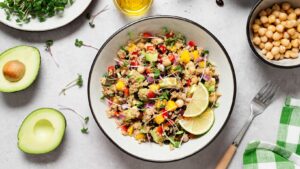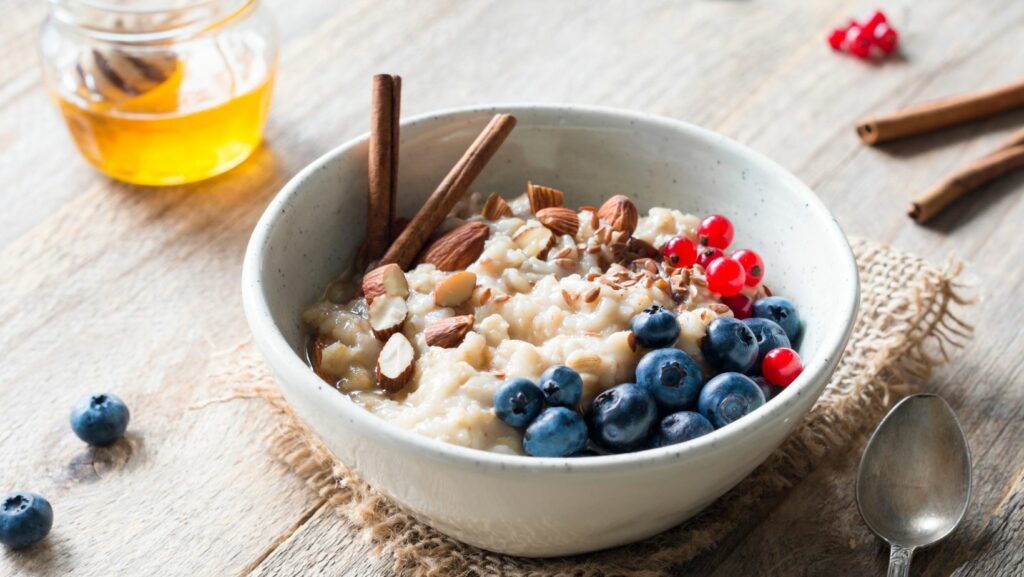Managing high blood pressure doesn’t have to be a daunting task, especially when it comes to meal planning. With the right ingredients and a bit of creativity, anyone can whip up simple, delicious meals that support heart health. The key is focusing on foods rich in nutrients that help lower blood pressure, such as fruits, vegetables, lean proteins, and whole grains.
Incorporating these foods into daily meals can be both easy and enjoyable. Whether it’s a quick breakfast smoothie packed with leafy greens and berries or a satisfying dinner featuring grilled fish and quinoa, the possibilities are endless. By making small, mindful changes to their diet, individuals can take significant steps towards maintaining a healthy blood pressure level.
This guide explores a variety of simple meal ideas designed to keep high blood pressure in check, proving that nutritious eating doesn’t have to be complicated or time-consuming.
Understanding High Blood Pressure
 High blood pressure, or hypertension, occurs when the force of blood against artery walls is consistently too high. This condition increases the risk of heart disease and stroke, as noted by the Centers for Disease Control and Prevention (CDC). It affects about 47% of adults in the United States, according to the American Heart Association. Often, there are no noticeable symptoms, making monitoring crucial.
High blood pressure, or hypertension, occurs when the force of blood against artery walls is consistently too high. This condition increases the risk of heart disease and stroke, as noted by the Centers for Disease Control and Prevention (CDC). It affects about 47% of adults in the United States, according to the American Heart Association. Often, there are no noticeable symptoms, making monitoring crucial.
Several factors contribute to hypertension. Diet plays a significant role. High sodium intake from processed foods can lead to elevated blood pressure levels. Lack of physical activity, excessive alcohol consumption, and stress are additional contributing factors. Genetics and age also influence susceptibility to high blood pressure. Understanding these risk factors can aid in taking preventive measures.
Lifestyle changes can effectively lower blood pressure. Dietary modifications, like adopting the Dietary Approaches to Stop Hypertension (DASH) diet, rich in fruits, vegetables, and lean proteins, can help. Regular exercise, stress management, and limiting alcohol intake form part of comprehensive management strategies. These approaches not only reduce hypertension risks but also promote overall cardiovascular health.
Simple Meals for High Blood Pressure
Choosing simple meals focused on heart health can aid in managing high blood pressure. Including nutrient-dense ingredients supports a balanced diet.
Breakfast Options
 Oatmeal, a whole-grain rich in fiber, offers a heart-healthy breakfast. Top it with bananas, a potassium-rich fruit, and a sprinkle of cinnamon for flavor. Whole-grain toast with avocado provides healthy fats and additional potassium. Smoothies made with low-fat yogurt, berries, and spinach deliver a nutrient-packed start to the day.
Oatmeal, a whole-grain rich in fiber, offers a heart-healthy breakfast. Top it with bananas, a potassium-rich fruit, and a sprinkle of cinnamon for flavor. Whole-grain toast with avocado provides healthy fats and additional potassium. Smoothies made with low-fat yogurt, berries, and spinach deliver a nutrient-packed start to the day.
Lunch Ideas
A quinoa salad with mixed greens, cherry tomatoes, and cucumber offers fiber and vitamins. Pair with a lemon and olive oil dressing to keep sodium low. Whole-grain sandwiches with turkey, spinach, and avocado supply lean protein and heart-healthy nutrients. Soups made with low-sodium broth, lentils, and vegetables like carrots and celery provide a warm, filling option.
Dinner Suggestions
Grilled salmon with steamed broccoli and brown rice offers omega-3 fatty acids and fiber. Stir-fried tofu with bell peppers and snow peas in a low-sodium soy sauce provides a plant-based protein-rich meal. Baked chicken breast with a sweet potato and a side of kale adds lean protein and potassium-rich foods to the evening menu.
Snacks and Desserts
 Incorporating heart-healthy snacks and desserts into daily routines can further support efforts to manage high blood pressure. Simple options like unsalted nuts and seeds provide healthy fats and protein that contribute to satiety and heart health. Fresh fruit, such as berries and apples, offers natural sweetness and essential nutrients without added sugars. For those with a sweet tooth, dark chocolate in moderation can be a satisfying treat rich in antioxidants.
Incorporating heart-healthy snacks and desserts into daily routines can further support efforts to manage high blood pressure. Simple options like unsalted nuts and seeds provide healthy fats and protein that contribute to satiety and heart health. Fresh fruit, such as berries and apples, offers natural sweetness and essential nutrients without added sugars. For those with a sweet tooth, dark chocolate in moderation can be a satisfying treat rich in antioxidants.
By embracing these snack and dessert ideas alongside balanced meals, individuals can create a comprehensive approach to managing high blood pressure. Consistent dietary choices, paired with lifestyle changes, empower individuals to take control of their cardiovascular health effectively.

